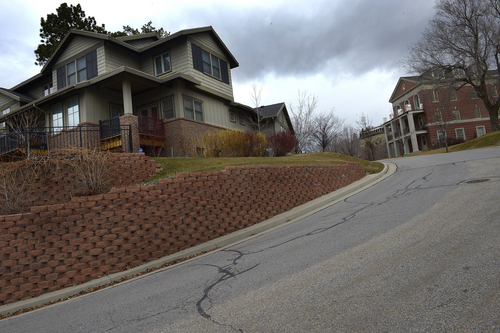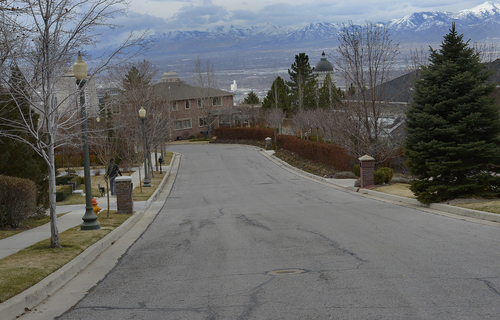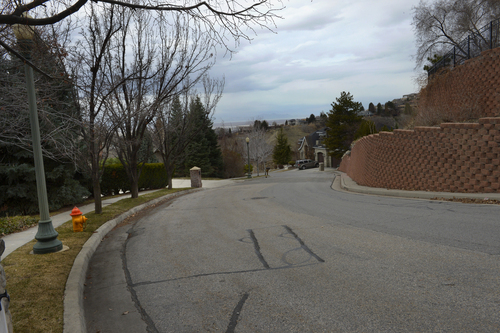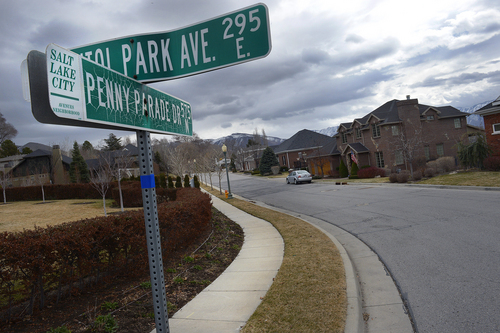This is an archived article that was published on sltrib.com in 2014, and information in the article may be outdated. It is provided only for personal research purposes and may not be reprinted.
When should a private street become a public one?
The Salt Lake City Council will again wrestle with that conundrum soon. An upscale subdivision is petitioning the city to take over snow removal, garbage collection and maintenance of its private roads and utilities.
The Capitol Park Homeowners Association encompasses one of the city's swankiest neighborhoods with breathtaking views of the Salt Lake Valley at about 12th Avenue between C Street and F Street. It incudes 55 houses on Capitol Park Avenue, Penny Parade Drive, Redbrick Court, Charity Cove and Caring Cove.
The homeowners association maintains the streets and the utilities beneath them but would rather the city own and care for them. The homeowners originally sought the change in 2008 but did not complete the process because a previous City Council did not embrace it.
Recently, however, the administration of Mayor Ralph Becker again forwarded the petition to the council.
According to city documents, the builder of the Capitol Park project gained approval in 1995 for the private development, which allowed smaller lot sizes and setbacks than outlined in city zoning codes.
The plan also allowed for narrower and steeper streets than required for public thoroughfares. The development was approved with the caveat that the streets and utilities would be maintained by the homeowners association.
The homeowners association originally petitioned to deed its streets and other infrastructure to the municipality in April 2008, city documents show.
But, in September 2011, the planning staff forwarded a negative recommendation to the Planning Commission.
The commission, however, eventually approved the petition because "the streets and underground utilities are used significantly by the public."
That's as far as the homeowners association got, said former City Councilman Eric Jergensen.
"This was an agreement between the city and the developer. He could develop according to that plan, and the expectation was those who bought property would be buying on a private street," he said, noting that such information is attached to the individual lot deeds in the project.
"Now some landowners want to come back to the city and say it's [the city's] responsibility? No it's not."
Several members of the Capitol Park Homeowners Association could not be reached for comment.
In a 2008 letter to Jergensen, the association's attorney, David Hirschi, said the city should accept deeds to the streets and utilities.
The streets are used by the general public, are in good condition and the speed limits match those of adjoining neighborhoods, he said. In addition, the utilities are in fine shape and used by the general public.
Charlie Luke, the present council chairman, said he has yet to schedule the petition for council discussion, but noted that it's a complex topic.
"We would be taking on streets not built to city standards," he said. "We have to think about liability."
In that context, Luke added, each private street seeking public status must be examined individually.
"What I look at is, does it fit within the continuity of the neighborhood and does it meet the specs for public streets? We can't ask our street crews and snowplows to take on something that is even more difficult."









